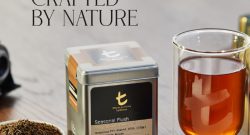Author: Admin
Celebrating Differences 2024
Over 250 children from our MJF Foundation Centres, from the shores of Weligama and Kalkudah and the vibrant heart of Colombo, came together to showcase their incredible talents and boundless spirit. From dancers with Cerebral Palsy and Down Syndrome to young gymnasts, budding musicians and singers to talented actors and actresses, our children prove that diversity and difference are beautiful, and make us uniquely human. Their determination, courage and unwavering belief in themselves were truly inspiring. As we remember our Founder’s vision, we’re filled with gratitude for the opportunity to make a difference in these young lives, and to Make The World A Better Tea.
Heartfelt Crafts by Senior Citizens
The ladies of the Sada Sarana Elders Home held their annual Christmas Sale with homemade goodies and treats. Using fresh fruits and vegetables grown in their very own garden, they are proof that age is no barrier to the spirit of entrepreneurship.
The Spirit of Enterprise
Our final People’s Market of 2024 was a festive frenzy! Over 77 vendors showcased seasonal treats, artisanal goods, Christmas décor and more, while 800 shoppers braved the post-cyclonic weather to support the ‘Marketplace for Dreams’!
A ‘Tea Phenomenon’ You Haven’t Heard Of
Learn about the Seasonal Flush by Dilmah, quite simply the most exclusive of all teas, where luxury is crafted by nature The Uva Seasonal Flush was enjoyed by tea planters for over a century, although it was only in 2007 that Dilmah sought to share the rare tea as an expression of the art and pride of teamakers. It was done with the passionate involvement of Dilhan C. Fernando’s father, the late Merrill J. Fernando, Founder of Dilmah. As a tea grower with a commitment to authenticity and a heart of kindness, sharing the taste adventure, natural goodness and ethical purpose in fine tea is important for ethical, family tea company Dilmah’s in a category dominated by traders and commoditisation. There is a story of natural biodiversity and craftsmanship behind every fine tea and the distinctive taste and character in each traditional, orthodox tea that maintains purity of origin are framed in the passion and artisanship that customers around the world value. Grown and harvested only when nature permits, the Dilmah Seasonal Flush elegantly expresses that art and the fingerprint of nature, and it perfectly aligns with the 21st century notion of conscious, natural luxury. Ceylon Tea acquired its desirability as a result of a collective focus on high quality teas made in the traditional, orthodox way, in a country that is blessed with rich, natural biodiversity. It is that which crafts aroma and taste in fine tea. From amongst the seven tea growing regions of Ceylon, teas grown in the remote Uva region were known for their pleasantly mellow character. During the autumnal, southwest monsoon, however, they are transformed for a brief moment – dry and dessicating winds barrel through the mountainous region, causing a natural seasonal, wintergreen character in the teas. This rare and exotic seasonal character expresses the fingerprint of nature in teas that are made with respect to nature – handpicked and handmade in the artisanal, orthodox style. Dilmah first offered the Uva Seasonal Flush in 2007, although a warming climate meant the perfect combination of climatic factors did not happen for the past give years. That makes this Uva Seasonal Flush 2024 particularly special. As Dilhan explained, the Uva Seasonal Flush 2024 presents the fingerprint of nature, offering a rare taste of a tea fashioned by climatic factors that last only a few days. Tea tasters at Dilmah taste over 10,000 teas each week, and over the past 39 years, only 14 Seasonal Flush teas have earned that accolade at Dilmah and presented to the world, the last in 2020. On most occasions, the Seasonal Flush has been cancelled for want of proper weather conditions, and lack of the seasonal personality – this is the emphasis on perfection and respect for nature at Dilmah. This year’s Uva Seasonal Flush will be the 15th. These rare teas, guided by nature, tradition and innovation, embody Dilmah’s commitment to authenticity and excellence – following in the founder’s legacy ‘To Make the World A Better Tea’.
Entrepreneurship in the 21st century
It’s Global Entrepreneurship Week; with our world on the brink of catastrophe in so many respects – conflict, climate, inequality – we have never needed the involvement of youth in defining entrepreneurial solutions to these problems, more than now. I was privileged to join the NIBM School of Business in exploring what entrepreneurship looks like from a practitioner’s perspective. The good news is that everyone wants to be an entrepreneur. Less good is the reality that few know how. Most have gone through the motions – marketing, business administration, new media, and their social media dramatically quotes great entrepreneurs. One explains, ‘anything is possible, another, ‘make the climb without the rope,’ and ‘let’s punch today in the face.’ I shared the story of one of our nation’s greatest entrepreneurs, my father Merrill J. Fernando. He set out from his tiny village in 1950 with a vision to make the world a better tea. Translating that vision into a mission demanded incredible faith, and as he often shared, when confronted with impossible obstacles he gained more strength and direction in prayer than anything he learned elsewhere. It demanded dedication. He devoted his life to tea and his evolution through trainee, employee, owner, bulk tea exporter, rejection, renewed effort and eventually the first step – the launch of Dilmah Tea. He was 55 when he saw the first glimpse of success, and it had taken him 35 years. The tea category was buoyant, yet the industry was moving in the direction of multi-origin blended teas, blindly pursing what greed, economic and business theory advocates – reduce your cost of goods. He was an entrepreneur, so his direction was the opposite, pure origin teas. Not because it was profitable, but because it was the right and honest decision. My father was blessed in being born to a lower middle class family which could not afford the university education that many told him would help advance his mission. I call it a blessing because his belief that human values should extend to business was not diluted by the business theory he might have been subjected to. His philosophy in life and work therefore was a continuation of his faith in God which fashioned his values – integrity, quality – and the kindness that my grandmother taught him. He believed fervently in his mission and he was passionate about his tea. A brand is a two-way covenant between customer and brand owner, and no brand has the right to deviate from its founding promise midway for profit. He fought attempts by successive governments of Sri Lanka to permit the importation of tea for blending, explaining to businesses and politicians lured by the promise of glamour and profit, that every kilogramme of cheap tea that enters Sri Lanka for blending would be a kilo less of quality Ceylon Tea exported. Value reduction rather than value addition. Following the industry direction would have produced vastly greater profits for Dilmah, as a brand, but explaining the social and economic disaster that could be the result was the right thing to do. Dilmah Founder Merrill J. Fernando embarked on a mission to make the world a better tea. 35 years later, in 1985 he succeeded in taking the first step with the launch of Dilmah Tea, on a foundation of quality and integrity and a heart of kindness. Entrepreneurship is too easily promoted as business as usual; assessing a category where one sees potential to make money, writing a story and joining the fray with a product that is a variation of one that exists. Invariably better packaged or lower priced of course, and with the risk that youth are advised are a part of entrepreneurship in their quest for profit. That’s not entrepreneurship. Less than 10% of startups succeed but lacking originality, devoid of relevance to the world, no endeavour deserves success. In this 21st Century everything has changed – consumer, environment, population, mindset, the role of brands and businesses. The notion of entrepreneurship must change too. Last year we had a showdown with one of our largest customers. Since 2009 successive price increases had been halved or quartered, even with data supported explanation of cost escalation. We stood our ground, and refused to compromise. In a market corroded by discount, where customers are lured by the short lived joy of half price, that was potentially catastrophic but it was a risk worth taking. We are growers, not traders, and we are at the frontline of many of the crises that our world confronts. Each can be mitigated or solved – we can and do adapt to climate change, to build resilience to ensure the food security we desperately need. We can and do fund education for the children of our workers to support their welfare. We can and do fund nutrition, vocational training, entrepreneurship development amongst our workers and the wider community, to reduce social, economic & gender inequality. We just can’t compromise. We are growers, not traders, and we are at the frontline of many of the crises that our world confronts. Each can be mitigated or solved – we can and do adapt to climate change, to build resilience to ensure the food security we desperately need. We can and do fund education for the children of our workers to support their welfare. We can and do fund nutrition, vocational training, entrepreneurship development amongst our workers and the wider community, to reduce social, economic & gender inequality. We just can’t compromise. The problem is all this costs money. A minimum 15% of our pretax earnings from Dilmah is used by our MJF Foundation to fund the healthcare, education, entrepreneurship, housing and other humanitarian initiatives and a further 5% to fund Dilmah Conservation’s Biodiversity, Climate Action and Environmental Education efforts. We have 300 people in our organisation dedicated to fulfilling this founding promise. I am too often advised that this is not what business should be doing. Too often also, our youth are advised to pursue profit. Reverting to the advice of my greatest mentor, the unschooled Merrill J. Fernando, you make money to give it away. As I now occupy the desk he once worked from, I see inches from my left hand the powerful inspiration that he lived by, Etienne de Grellet’s words – “I shall pass through this world but once. Anything therefore that I can do or any kindness that I can show to any human being, let me do it now. Let me not defer it or neglect it, for I shall not pass this way again.” As I explained to the students of NIBM in closing, without purpose, life is meaningless. Purpose validates ambition, and it unites, motivates and energizes teams to achieve. That purpose cannot be profit nor can it be success. Our purpose must be the significance that lies beyond profit. Anything less would be parasitic, upon people and nature. Achieve significance and the profit will find you. All the ‘unbusinesslike’ activities of our business today are our greatest strength and our most powerful resilience. We need to explain this as much to our colleagues in business as to the young men & women who we hope will deliver entrepreneurial solutions to the existential threat we face today. As many young people are doing around the world already, we need to ask the same of governments structured outdated principles, and unable to comprehend the simple reality that business, government, life, all begin and end with people and nature. I was able to conclude with the equally un-businesslike mission statement that we embrace wholeheartedly. More than anything at Dilmah, we believe in being kind. Kindness is at the heart of everything we do. We spread kindness by doing everything with care and respect. This means respecting nature – sustainably growing only the finest ingredients and protecting the environment. Respecting our workers – providing them with good working conditions and being kind to their families. Respecting our customers – we do not mix our teas. We uphold the highest standards and do not compromise quality to enhance profit. We make the best tea in the world and use our earnings to support those that need that little bit of kindness the most.
The People’s Market Heads to the East!
The first-ever People’s Market in Kalkudah kicked off at the VC Ground in Valachchanai, and it was a great success! 40 of our Small Entrepreneur Programme (SEP) beneficiaries, entrepreneurs with disabilities and parents of our students showcased their products and services. Over 1,500 people attended and enjoyed an evening of empowerment and community spirit! Even the monsoon rains couldn’t dampen the atmosphere of The People’s Market-Kalkudah!
The Tuk Tuk Library Comes to Weligama!
The Tuk Tuk Library is a mobile library that travels to schools and communities, bringing a whole world of books within reach. Our little friends from the preschool and older children too get to explore a variety of books and stories, sparking their imagination and curiosity. In addition to Weligama, our Tuk Tuk Libraries also zoom around the urban town of Moratuwa and the coastal hub of Kalkudah!
The CCCPDD Takes Centerstage!
Our hearts are bursting with pride as we celebrate the incredible achievements of our amazing children at the annual concert by the Centre for Children with Cerebral Palsy and other Developmental Disorders (CCCPDD).After months of dedication and hard work by all the children, teachers and parents, the stage came alive with incredible talents. From solo singing to gymnastic tumbles to wheelchair dancing, the children’s joy and confidence shone brightly. Through the MJF Charitable Foundation, 15% of Dilmah’s pre-tax profits go towards fully funding the CCCPDD and our other centres that take care of the nutrition, education and special needs of children with disabilities. Your support helps us #MakeTheWorldABetterTea where every child feels valued. Thank you for choosing Dilmah!








